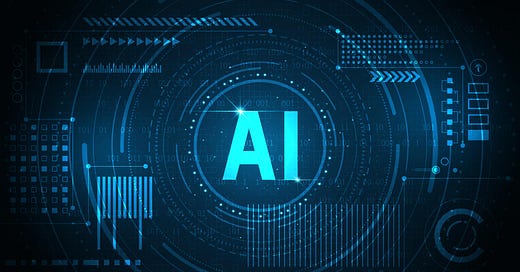Tech giants have dominated the AI landscape, pouring billions into research, infrastructure, and computational power to maintain their lead. The prevailing belief was simple: scale equals success. But DeepSeek, a small 200-person startup in China, shattered that assumption this week.
DeepSeek unveiled DeepSeek R1, a system capable of rivalling OpenAI’s GPT-4 on key reasoning tasks. Even more remarkable is how they achieved it—with just $5 million in costs and a fraction of the computational resources typically required. DeepSeek’s breakthrough is more than a technical milestone; it represents a paradigm shift for an industry accustomed to billion-dollar moonshots.
This is no longer a story of gradual progress. It’s a story of disruption. And at its heart lies a bold question: Has open source changed the rules of AI forever?
Disruption on an Unprecedented Scale
DeepSeek’s announcement has sent shockwaves across the tech industry. At a time when large-scale AI infrastructure projects—like Meta’s $65 billion data centre expansion and Microsoft’s $80 billion investment in GPUs—are viewed as essential for innovation, DeepSeek has turned this paradigm on its head.
DeepSeek’s approach prioritises efficiency over brute force, redefining how AI models are trained and deployed:
Precision Redefined: By reducing computational precision from 32-bit to 8-bit, DeepSeek slashed memory usage by 75%.
Optimised Modular Design: Task-specific modules activate only the necessary parameters, dramatically reducing the number of active parameters from trillions to billions.
Hardware Agility: Leveraging widely available gaming GPUs instead of specialised chips, DeepSeek bypassed the high costs associated with proprietary hardware.
The results were staggering: training costs, typically exceeding $100 million for state-of-the-art models, were reduced to a fraction of that amount. DeepSeek’s innovations also cut GPU requirements from 100,000 to 2,000, proving that smaller, smarter systems can rival massive infrastructure investments.
The Open-Source Gamble
Perhaps the most revolutionary aspect of DeepSeek’s announcement isn’t just the technology—it’s how it was shared. DeepSeek R1 is open source, allowing anyone to access, modify, and build on the system.
This democratisation of cutting-edge AI has massive implications for research, startups, and hobbyists. However, it also raises complex and critical questions about the nature of control, accountability, and equity in this new AI era:
1. When source code is open but expertise remains concentrated, who truly governs AI's evolution?
While DeepSeek has made its technology widely accessible, the expertise required to fine-tune and deploy such models remains concentrated among a limited number of skilled developers and organisations. This creates a paradox: the tools are democratised, but their effective use may remain in the hands of a technical elite.
Efforts to address this gap could include creating accessible training materials, community support networks, and tools to lower the technical barriers to adoption.
2. Does open-source AI democratise innovation or create a new technical elite?
Open source promises access, but that access may not equate to equality. Smaller organisations and underserved communities may lack the computational resources, data access, or technical know-how to fully leverage models like DeepSeek R1.
This raises concerns about whether open-source AI will close gaps or exacerbate them. To avoid creating a new technical elite, investments in infrastructure democratisation—such as affordable cloud computing credits or open-access datasets—are essential.
3. How do we ensure responsible development when powerful AI models become freely available?
The potential for misuse of open-source AI cannot be ignored. Models like DeepSeek R1 could be used for malicious purposes, such as generating deepfakes, automating disinformation, or enabling cyberattacks.
Guardrails are critical. Policymakers and developers must collaborate on ethical standards, implement licensing agreements restricting harmful use cases, and establish oversight mechanisms to ensure compliance.
4. Who maintains accountability when anyone can deploy state-of-the-art AI systems?
Accountability becomes diffuse in a world where powerful AI tools are freely available. If an open-source model is used unethically, who bears responsibility—the developers, the deployers, or the broader community?
The answer lies in shared accountability frameworks. Developers of open-source models should include detailed documentation on ethical deployment and actively engage with stakeholders to create governance models. Community-driven oversight boards or forums also help maintain transparency and accountability.
5. Will open source bridge or widen the gap between AI haves and have-nots?
Open-source AI can potentially democratise innovation, but only if efforts are made to address systemic inequalities. Without equitable access to computational resources and education, the gap between AI haves and have-nots could widen.
Initiatives such as subsidised hardware, public datasets, and open educational platforms are critical to ensuring that the benefits of open-source AI are distributed widely and fairly.
A New AI Economy
The ripple effects of DeepSeek’s disruption extend far beyond tech giants like OpenAI or NVIDIA. Entire industries stand to benefit—or be reshaped—by this shift toward efficiency:
Healthcare: Affordable, personalised AI models could revolutionise diagnostics and treatment.
Finance: Smaller firms may challenge proprietary algorithms with lean, open-source systems.
Education: AI-driven personalised learning could finally reach underserved communities, closing global education gaps.
Yet, with these opportunities come challenges. Industries must adapt to a faster, more competitive landscape while ensuring safeguards are in place to prevent misuse.
The Future of AI Belongs to the Bold
DeepSeek’s story reminds us that innovation doesn’t come from following the rules—it comes from rewriting them. Yet, as the ability to build powerful AI systems becomes more widely accessible, we must confront new realities:
Who governs AI’s evolution?
How do we ensure accountability and safety in an open-source future?
The tools to reshape industries and solve humanity’s most significant challenges are now within reach. However, the rules of AI development have indeed changed. The question is: Are we prepared for the world we’re creating?







Very powerful read Tony. I enjoyed your straight talk about open source. It looks like DeepSeek is doing its best to put everything online, but still, they will call the shots on revisions. That isn't necessarily all bad.